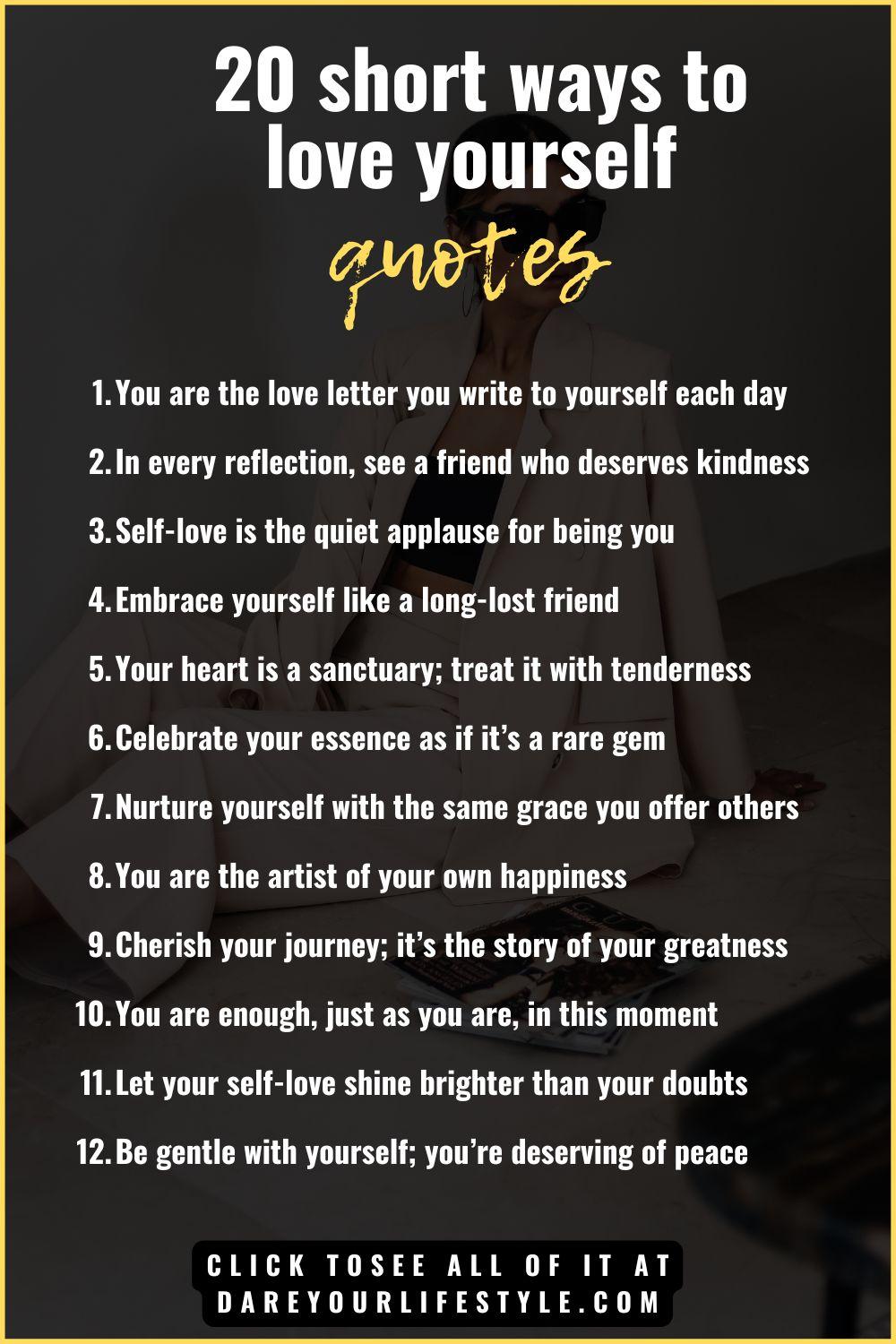Disclaimer: This post may contain affiliate links, meaning we get a small commission if you make a purchase through our link at no extra cost to you. For more information, please visit our Disclaimer Page.
You know that feeling when you look in the mirror and everything feels… wrong?
I lived there for years. Self-pity became my language. Self-hate was my daily routine. I genuinely believed I wasn’t worth the air I breathed.
But here’s what changed everything: learning to love yourself isn’t some overnight magic trick. It’s a daily decision. And if I could find my way out of that darkness, you can too.
Table of Contents
What Is Self Love, Really?
Let’s get real for a second. Self love isn’t about bubble baths and face masks. Those things are nice, but they’re not the foundation.
Self-love is accepting who you are at your core. It’s showing yourself kindness when you mess up. It’s feeling at home in your own skin even when the world tells you to change everything about yourself.
Think of it like this: you talk to yourself more than anyone else in your life. So the question is—are you speaking life or death over your soul?
For me, self-love meant finally seeing what God saw when He made me. Psalm 139:14 says I am fearfully and wonderfully made.
Why Is Self-Love So Important?
Because you can’t pour from an empty cup, my friend.
When you don’t love yourself, every relationship suffers. Your work suffers. Your faith feels shaky. You give pieces of yourself to people who don’t deserve them because you don’t think you deserve better.
I spent years shrinking to make others comfortable. I apologized for existing. I let people walk all over me because I didn’t think I had the right to set boundaries.
And guess what, you can’t build a solid life on a broken foundation. Embracing who you’re becoming starts with honoring who you are right now. And that requires you to actually like yourself first.
Self-love gives you the strength to protect your peace. It helps you walk away from what drains you. It teaches you that choosing rest over burnout isn’t selfish—it’s survival.
Top 7 Ways to Practice Self-Love
I didn’t figure this out overnight. I fell. I got back up. I cried in my car more times than I can count. But these seven practices? They saved my life.
1. Repeat Affirmations (Yes, Really)
I know, I know. It sounds silly. Trust me, I thought the same thing.
But I started reading affirmations for faith in God on my phone every single morning. Sometimes I’d write them on sticky notes and plaster them all over my bathroom mirror. My favorite one? Psalm 139:14—”I am fearfully and wonderfully made.”
When you speak life over yourself daily, something shifts. Your brain starts believing it. You start moving differently. Speaking kindly to yourself becomes a habit instead of a foreign concept.
Try this: pick three positive affirmations for self-discipline that feel true (or that you want to believe). Say them out loud. Daily. Watch what happens.
2. Challenge Negative Thoughts Immediately
This one goes hand-in-hand with affirmations. The second a negative thought pops into your head—and it will—you counter it with the opposite.
“I’m not good enough” becomes “I am exactly where I need to be.”
“Nobody cares about me” becomes “I am surrounded by people who see my worth.”
This isn’t toxic positivity. It’s taking mindful pauses to notice your emotions without judgment. Then you choose a better narrative. Because forgiving yourself for past mistakes starts with changing how you think about yourself today.
3. Listen to Music That Lifts You Up
Music saved me on my worst days.
I created playlists full of worship songs and positive tracks that spoke directly to what I was experiencing. When I felt low, I’d play them on repeat until my spirit shifted.
Music has a way of breathing through stressful moments when nothing else can. It gives you permission to feel and heal at the same time.
Find songs that remind you who you are. Songs that celebrate your quiet progress. Songs that make you believe tomorrow can be different.
4. Set Boundaries (Even When It Feels Scary)
Oh, this one. This one changed everything.
I had to grow some skin and let people know what I would and would not tolerate anymore. Sometimes I said it out loud: “I don’t accept this behavior anymore.” Other times, I let my actions speak by walking away from situations that no longer served me.
Protecting your peace isn’t mean. It’s necessary.
Setting boundaries that honor your worth made me see my own value. When you honor your emotional limits, you teach others how to treat you. And trust me, my friend—it works. Try it.
5. Join a Community That Gets You
I used to think something was wrong with me. My personality. The way I spoke. My self-image. All of it felt broken.
Then I started joining online communities centered around support and growth. I showed up. I shared. I listened to stories from people who’d been where I was.
And you know what? Surrounding yourself with supportive energy makes you realize you’re not alone. These people reminded me I was worthy. They celebrated small wins with me. They held space when I couldn’t hold it for myself.
Finding your people is one of the most powerful ways to love yourself. Because sometimes, you need others to reflect back the good you can’t see yet.
6. Celebrate Successes (Even the Tiny Ones)
I had to stop and look at where I came from to appreciate where I am today.
Every small victory mattered. Getting out of bed on hard days. Saying no when I wanted to people-please. Taking time to rest instead of pushing through exhaustion.
Celebrating your quiet progress reminds you that you’re worthy of success and victories. It builds confidence slowly but surely. And it gives you the courage to keep going when things get tough.
Write down three things you’re proud of this week. Doesn’t matter how small. Celebrate them. You can even use journaling prompts to help you reflect on your wins.
7. Accept the Imperfections That Make You, You
This one took me the longest to learn.
I had issues with my image. My height (I’m short—surprise). My introverted nature. The way I processed emotions internally instead of broadcasting them.
But here’s the thing: the sooner we learn to accept the things we can’t change about ourselves, the sooner we realize God made us this way on purpose. For a purpose.
Embracing who you’re becoming means making peace with who you are right now. Flaws and all. Starting mornings with intention to honor yourself as you are—not as you think you should be.
You don’t need to fix yourself, my friend. You need to accept yourself. Then you can grow from a place of love instead of lack.
Resources to help you love yourself
Embarking on the journey of self-love is a transformative experience that can enrich every aspect of your life.
It’s about nurturing a deep and unwavering appreciation for yourself, embracing your unique qualities, and recognizing your inherent worth.
This journey is not always easy, but it’s incredibly rewarding.
To guide you on this path, we’ve gathered inspiring resources and support systems that can empower you to love yourself unconditionally:
Self-Love Books, Podcasts, and Resources:
There’s a wealth of knowledge and inspiration available in books and podcasts dedicated to self-love. Some popular titles include:
- You Can Heal Your Life by Louise Hay
- The Gifts of Imperfection by Brené Brown
- The Self-Love Experiment by Shannon Kaiser
- The Untethered Soul by Michael A. Singer
Podcasts like “The Self-Love Fix“offers insightful conversations and practical tips for cultivating self-love.
Self-Love Groups and Therapy:
Joining a self-love group or seeking therapy can provide a safe and supportive space to explore your feelings, challenge negative beliefs, and develop healthy coping mechanisms. These communities can offer valuable insights, encouragement, and accountability on your journey to self-love.
Remember, the journey to self-love is ongoing and unique to each individual. Be patient with yourself, celebrate your progress, and don’t hesitate to seek support when needed.
By embracing self-love, you’re not

20 Short Self-Love Quotes
- You are the love letter you write to yourself each day
- In every reflection, see a friend who deserves kindness
- Self-love is the quiet applause for being you
- Embrace yourself like a long-lost friend
- Your heart is a sanctuary; treat it with tenderness
- Celebrate your essence as if it’s a rare gem
- Nurture yourself with the same grace you offer others
- You are the artist of your own happiness
- Cherish your journey; it’s the story of your greatness
- You are enough, just as you are, in this moment
- Let your self-love shine brighter than your doubts
- Be gentle with yourself; you’re deserving of peace
- Your worth is defined by your own embrace
- In the mirror of your heart, find the reflection of kindness
- Celebrate each small victory as a testament to your strength
- Your soul’s music is a melody of self-acceptance
- You are your own best companion; cherish that bond
- Love yourself fiercely and watch the world follow suit
- Every flaw is a unique brushstroke in your masterpiece
- You are the sun in your own sky; shine unapologetically
Final Thoughts: This Is a Journey, Not a Destination
Learning to love yourself doesn’t happen in a day. Some days you’ll feel strong. Other days you’ll wonder if you’ve made any progress at all.
But here’s what I know for sure: you are not what people said about you. Your value doesn’t shift with opinion. You were created with intention, and that means something.
So take these ways to love yourself and use them. Not perfectly. Just consistently. Make space for your needs. Give yourself grace when things go wrong. Do small things that make you smile.
And remember: loving yourself isn’t selfish. It’s the most spiritual thing you can do.
Because when you finally see yourself the way God sees you? Everything changes.
Now go show yourself the kindness you’ve been giving everyone else.






